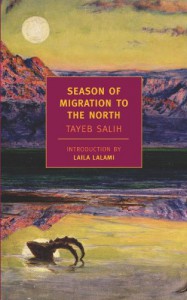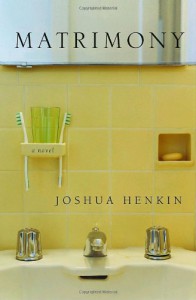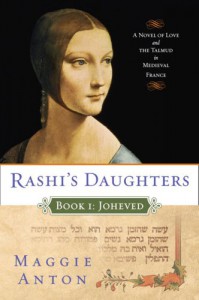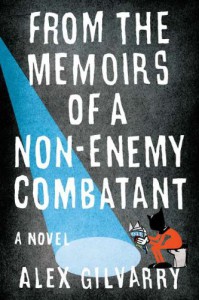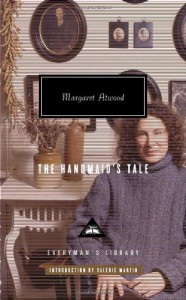
Genizah, a Hebrew word, is defined as a storeroom or attic, usually in a synagogue, for worn or unusable prayerbooks or bibles, which, since they contain the name of God, cannot be thrown away but must rather be buried according to Jewish ritual. That was the first question I had when I picked up The Genizah at the House of Shepher, and attics and storerooms and worn old books are at the crux of this slow, literary and very moving story about a woman, a book, and a mystery.
Shulamit Shepher is a researcher and scholar in the field of the Hebrew Bible; she lives in England and travels to Jerusalem to unravel a family controversy that threatens to boil over. Years ago, her great-grandfather, Shalom Shepher, had undertaken to find the ten lost tribes of Israel, and when he returned he brought with him a codex of the Hebrew Bible, found somewhere on his journeys. The book remains hidden for years; when it's discovered in the attic of the family home, the family decides to give it, albeit temporarily and for purposes of further study, to a research institute. Shulamit comes to Israel to see the codex, and to try to use her professional skills to unravel this family mystery. When she arrives she finds herself in the middle of family rivalries and secrets, and meets an intriguing stranger also interested in the codex.
The narrative alternates between Shulamit in the present tense and the story of her family in the past tense, starting with her great-grandfather's first marriage, leading right through her father's failed love affair and her brother's defection from the family. Author Tamar Yellin tells the story slowly, and ponderously; midrashic stories about Moses are interwoven as allegories about knowledge and learning, about what should be, and should not be, gleaned from books. This codex could be a very special book, an early- or perhaps even original- version of the Hebrew Bible, of which there are so many variants and versions, and as such has the potential to be of cataclysmic importance both spiritually, historically, academically and even commercially. Therefore the family is fraught with tension, anger and anticipation over its fate, which brings to the surface all kinds of lingering, competing motives and intentions.
The Genizah at the House of Shepher bears a passing resemblance to another book recently published about a female scholar and the fate of a precious Jewish book- Geraldine Brooks's People of the Book (which I reviewed earlier this year), but The Genizah is quite different. People of the Book was a page-turner- action-packed and busy with movement and twists and turns. The Genizah is altogether a slower book, more thoughtful, and more literary in style. I also found Shulamit to be a more likable character than Brooks's prickly heroine Hanna. People of the Book I can see being made into a movie; The Genizah I can see becoming a classic, and as the winner of last year's Sami Rohr Prize for Jewish Literature, given by the Jewish Book Council, it's off to a good start.
I loved reading The Genizah at the House of Shepher. I thought Yellin hit all the right notes in terms of pacing, character and outcome. The tentative romance between Shulamit and the mysterious Gideon was handled beautifully and the story of her family, and especially her father, was fascinating and bittersweet. I could have finished the book days before I did, but I slowed down for the concluding few chapters, because I wanted to make it last. I may pick it up again soon.
See my review at my blog as well; http://www.bostonbibliophile.com/2008/06/review-genizah-at-house-of-shepher.html
 Really good literary novel in the style of Ian McEwan about an older man pushed out of his job, who is stalked by a stranger and negotiating difficult relationships with his grown children and former wife. The book starts with a shocking act of violence and works its way back around to how it happened. It's a very accomplished first novel from a writer from whom I hope to see more. Full review here: http://www.bostonbibliophile.com/2011/07/review-upright-piano-player-by-david.html
Really good literary novel in the style of Ian McEwan about an older man pushed out of his job, who is stalked by a stranger and negotiating difficult relationships with his grown children and former wife. The book starts with a shocking act of violence and works its way back around to how it happened. It's a very accomplished first novel from a writer from whom I hope to see more. Full review here: http://www.bostonbibliophile.com/2011/07/review-upright-piano-player-by-david.html
 Lolita is one of my favorite books for its precision prose, famously unreliable narrator and multitude of allusions and wordplays. The annotated version is great because it explains all these allusions and word games and allows the reader to dig into the construction of the novel to a greater degree than is otherwise sometimes possible outside of a classroom. I found the annotations enriched my understanding and appreciation of this literary tour de force tremendously.
Lolita is one of my favorite books for its precision prose, famously unreliable narrator and multitude of allusions and wordplays. The annotated version is great because it explains all these allusions and word games and allows the reader to dig into the construction of the novel to a greater degree than is otherwise sometimes possible outside of a classroom. I found the annotations enriched my understanding and appreciation of this literary tour de force tremendously.
 Genizah, a Hebrew word, is defined as a storeroom or attic, usually in a synagogue, for worn or unusable prayerbooks or bibles, which, since they contain the name of God, cannot be thrown away but must rather be buried according to Jewish ritual. That was the first question I had when I picked up The Genizah at the House of Shepher, and attics and storerooms and worn old books are at the crux of this slow, literary and very moving story about a woman, a book, and a mystery.
Shulamit Shepher is a researcher and scholar in the field of the Hebrew Bible; she lives in England and travels to Jerusalem to unravel a family controversy that threatens to boil over. Years ago, her great-grandfather, Shalom Shepher, had undertaken to find the ten lost tribes of Israel, and when he returned he brought with him a codex of the Hebrew Bible, found somewhere on his journeys. The book remains hidden for years; when it's discovered in the attic of the family home, the family decides to give it, albeit temporarily and for purposes of further study, to a research institute. Shulamit comes to Israel to see the codex, and to try to use her professional skills to unravel this family mystery. When she arrives she finds herself in the middle of family rivalries and secrets, and meets an intriguing stranger also interested in the codex.
The narrative alternates between Shulamit in the present tense and the story of her family in the past tense, starting with her great-grandfather's first marriage, leading right through her father's failed love affair and her brother's defection from the family. Author Tamar Yellin tells the story slowly, and ponderously; midrashic stories about Moses are interwoven as allegories about knowledge and learning, about what should be, and should not be, gleaned from books. This codex could be a very special book, an early- or perhaps even original- version of the Hebrew Bible, of which there are so many variants and versions, and as such has the potential to be of cataclysmic importance both spiritually, historically, academically and even commercially. Therefore the family is fraught with tension, anger and anticipation over its fate, which brings to the surface all kinds of lingering, competing motives and intentions.
The Genizah at the House of Shepher bears a passing resemblance to another book recently published about a female scholar and the fate of a precious Jewish book- Geraldine Brooks's People of the Book (which I reviewed earlier this year), but The Genizah is quite different. People of the Book was a page-turner- action-packed and busy with movement and twists and turns. The Genizah is altogether a slower book, more thoughtful, and more literary in style. I also found Shulamit to be a more likable character than Brooks's prickly heroine Hanna. People of the Book I can see being made into a movie; The Genizah I can see becoming a classic, and as the winner of last year's Sami Rohr Prize for Jewish Literature, given by the Jewish Book Council, it's off to a good start.
I loved reading The Genizah at the House of Shepher. I thought Yellin hit all the right notes in terms of pacing, character and outcome. The tentative romance between Shulamit and the mysterious Gideon was handled beautifully and the story of her family, and especially her father, was fascinating and bittersweet. I could have finished the book days before I did, but I slowed down for the concluding few chapters, because I wanted to make it last. I may pick it up again soon.
See my review at my blog as well; http://www.bostonbibliophile.com/2008/06/review-genizah-at-house-of-shepher.html
Genizah, a Hebrew word, is defined as a storeroom or attic, usually in a synagogue, for worn or unusable prayerbooks or bibles, which, since they contain the name of God, cannot be thrown away but must rather be buried according to Jewish ritual. That was the first question I had when I picked up The Genizah at the House of Shepher, and attics and storerooms and worn old books are at the crux of this slow, literary and very moving story about a woman, a book, and a mystery.
Shulamit Shepher is a researcher and scholar in the field of the Hebrew Bible; she lives in England and travels to Jerusalem to unravel a family controversy that threatens to boil over. Years ago, her great-grandfather, Shalom Shepher, had undertaken to find the ten lost tribes of Israel, and when he returned he brought with him a codex of the Hebrew Bible, found somewhere on his journeys. The book remains hidden for years; when it's discovered in the attic of the family home, the family decides to give it, albeit temporarily and for purposes of further study, to a research institute. Shulamit comes to Israel to see the codex, and to try to use her professional skills to unravel this family mystery. When she arrives she finds herself in the middle of family rivalries and secrets, and meets an intriguing stranger also interested in the codex.
The narrative alternates between Shulamit in the present tense and the story of her family in the past tense, starting with her great-grandfather's first marriage, leading right through her father's failed love affair and her brother's defection from the family. Author Tamar Yellin tells the story slowly, and ponderously; midrashic stories about Moses are interwoven as allegories about knowledge and learning, about what should be, and should not be, gleaned from books. This codex could be a very special book, an early- or perhaps even original- version of the Hebrew Bible, of which there are so many variants and versions, and as such has the potential to be of cataclysmic importance both spiritually, historically, academically and even commercially. Therefore the family is fraught with tension, anger and anticipation over its fate, which brings to the surface all kinds of lingering, competing motives and intentions.
The Genizah at the House of Shepher bears a passing resemblance to another book recently published about a female scholar and the fate of a precious Jewish book- Geraldine Brooks's People of the Book (which I reviewed earlier this year), but The Genizah is quite different. People of the Book was a page-turner- action-packed and busy with movement and twists and turns. The Genizah is altogether a slower book, more thoughtful, and more literary in style. I also found Shulamit to be a more likable character than Brooks's prickly heroine Hanna. People of the Book I can see being made into a movie; The Genizah I can see becoming a classic, and as the winner of last year's Sami Rohr Prize for Jewish Literature, given by the Jewish Book Council, it's off to a good start.
I loved reading The Genizah at the House of Shepher. I thought Yellin hit all the right notes in terms of pacing, character and outcome. The tentative romance between Shulamit and the mysterious Gideon was handled beautifully and the story of her family, and especially her father, was fascinating and bittersweet. I could have finished the book days before I did, but I slowed down for the concluding few chapters, because I wanted to make it last. I may pick it up again soon.
See my review at my blog as well; http://www.bostonbibliophile.com/2008/06/review-genizah-at-house-of-shepher.html


